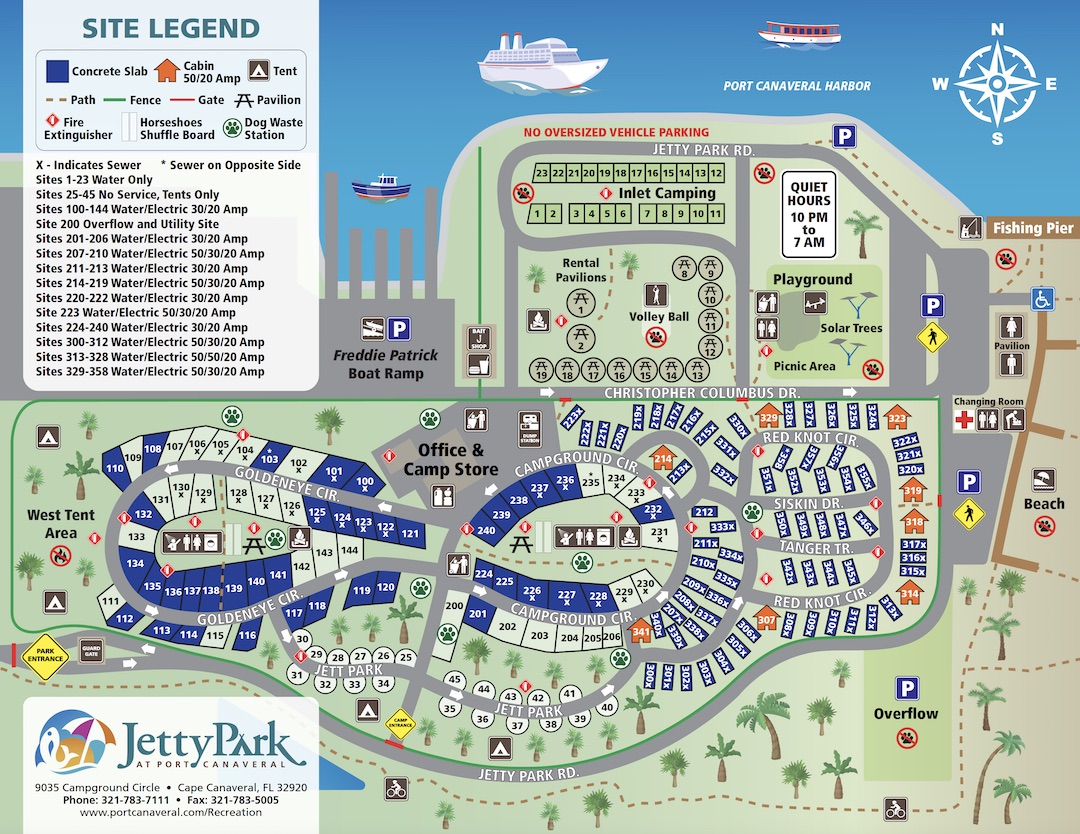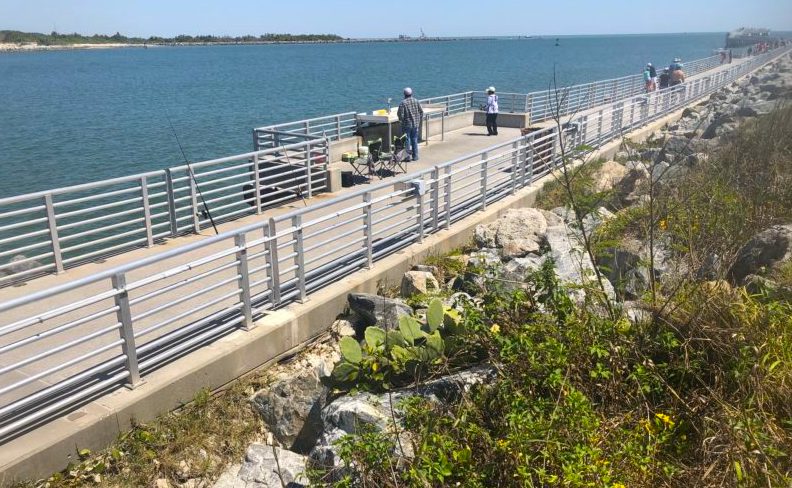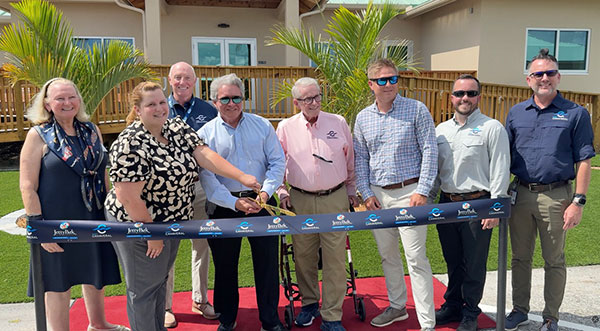BREVARD HISTORY: From Jetty to Jewel – The Story Behind One of Brevard County’s Most Popular Parks
By Space Coast Daily // November 27, 2025
Jetty Park at 59: A Look Back at Decades of Growth on Brevard’s Coast

BREVARD COUNTY • PORT CANAVERAL, FLORIDA – Canaveral Port Authority (CPA) today operates Jetty Park, a 45-acre waterfront recreation area at the east end of Port Canaveral.
According to official records, Jetty Park first opened in 1966. Over the decades, it grew from a modest beach and camping area into the full-fledged beach, pier, campground, and visitor-amenity complex people enjoy today.
Even in its early years, the park offered camping: by July 1969, Jetty Park had 140 campsites with water and electrical hook-ups, along with tables and grills. An aerial photograph from that period was even included in a 1969 issue of Trailer Life magazine.
As recreation demand rose — especially with the growing popularity of family beach trips, fishing, and ocean-front camping — Jetty Park gradually expanded and improved its facilities.
One of the biggest steps in that evolution came in the early 1990s. Before then, anglers who wanted to fish in the area often had to clamber over rocks at the jetty — dangerous, uncomfortable, and limiting.
In 1993, construction began on a paved, lighted public pier that would vastly improve both access and safety. The project cost roughly $650,000, funded about half by the U.S. Army Corps of Engineers and half by the Port Canaveral Authority.


On September 22, 1995, the pier was officially dedicated — named in honor of Malcolm E. McLouth, a longtime port-commission chairman whose decades-long advocacy helped shape Port Canaveral’s growth and the beach and recreation facilities at Jetty Park.
Originally built at 700 feet, the design envisioned extending it by another 500 feet — ultimately producing the 1,200-foot pier that stands today.
With the pier came better amenities: paved and lighted surfaces for safe daytime and nighttime fishing; fish-cleaning tables with running water; and improved accessibility for people with mobility challenges — including special beach wheelchairs for access to both the beach and the pier.
These improvements helped transform Jetty Park from a simple beachfront and camping site to a premier recreation spot — providing fishing, swimming, camping, and more under one coastal roof.

Shifting Stewardship: From County to Port Authority
Originally, the land for Jetty Park was owned and managed by Brevard County.
However, starting in 1986, the county leased the land to the Canaveral Port Authority — at a nominal $1 per year — reflecting shared goals of maintaining the area as Port Canaveral expanded.
In 1995, the lease was renewed for 20 years, shifting full operational and maintenance responsibility to the Port Authority.
Finally, on July 10, 2018, the Port Authority completed the purchase of the remaining 9.61 acres of Brevard County-owned land at Jetty Park — for $862,950 — giving the Port full ownership of the park’s 45 acres.
Port leadership said that acquiring the whole property would help ensure Jetty Park’s long-term viability as “one of the region’s premier recreational destinations.”

Jetty Park hasn’t rested on its legacy. As recently as summer 2025, the Port Authority unveiled a brand-new camp store and campers’ lounge — part of a broader investment effort under what they call the “Port Canaveral Advantage.”
The new camp store — an air-conditioned, 6,200-square-foot facility — gives campers and day visitors expanded access to supplies: RV and camping gear, beach necessities, food, snacks, souvenirs, as well as a relaxing lounge with complimentary coffee, device-charging, a kid-friendly recreation corner, board games, and more.
Port officials describe this as just the first in a series of upgrades intended to keep Jetty Park competitive and appealing.
Given that Jetty Park draws more than 400,000 visitors per year, these investments help ensure it continues to serve both the local community and tourists for decades to come.

The transformation of Jetty Park tracks closely with the rise of Port Canaveral — once a modest harbor, today a major cruise port, cargo hub, and recreation magnet.
As early as 1968, environmental concerns shaped how the Port and Jetty operations were managed — for instance, studies were initiated to assess the impact of harbor operations on water quality.
Over time, recreation and environmental stewardship became core to how the Port viewed Jetty Park — not just as land adjacent to commercial operations, but as a public amenity: a place for camping, swimming, fishing, wildlife, and bird-watching, rocket-launch viewing, and community gatherings.
The decision — and ability — to fully acquire and upgrade the park reflects a long-term commitment to preserving that role even as Port Canaveral continues to grow commercially.
• A community asset with roots over half a century old — Jetty Park has served Brevard residents and visitors since 1966, evolving as needs and expectations changed.
• Public-private cooperation & stewardship — The transition from county-managed to Port Authority–managed represents an example of local government and port infrastructure working in tandem to serve both commerce and community.
• Commitment to accessibility and recreation — From its early campsites to modern, accessible fishing pier and amenities, Jetty Park shows a long-term commitment to inclusive, affordable outdoor recreation.
• Adaptation and growth over time — Pier construction in the 1990s, campsite expansions in the late 1960s/70s, and recent upgrades in 2025 demonstrate the park’s evolving role to meet changing community and visitor needs.
For Brevardians like us — and for the many out-of-town visitors who come to breathe the ocean air, cast a line, camp under the stars, or watch a rocket soar — Jetty Park isn’t a static relic. It’s a living, evolving symbol of coastal community, public access to nature, and the balancing act between port commerce and recreation.
CLICK HERE FOR MORE SPACE COAST HISTORY












